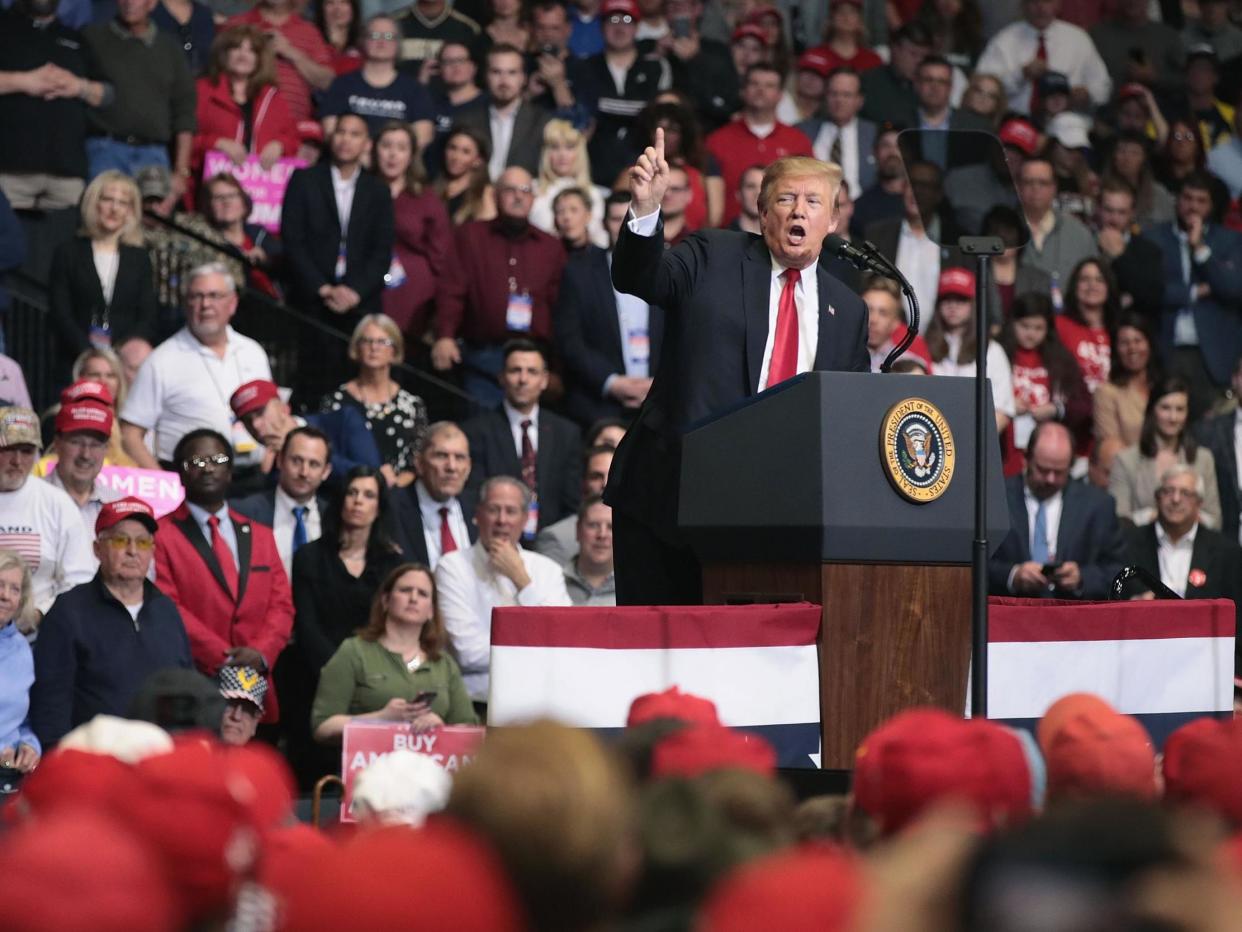What is electoral college and what are the pros and cons of the voting system?

Looking towards the 2020 presidential election, democratic candidates vying to take on Donald Trump have apparently learned a valuable lesson from November 2016 when he shocked the world by winning the election by winning the electoral college — but fell millions of votes short in the popular vote.
Top democratic presidential candidates have come out against that electoral system which has delivered the presidency to two men in recent memory even though they failed to gain support from a majority of voters.
If it sounds funny that a candidate could earn less votes than their competitor but still win, read on.
Here’s what you need to know about the electoral college, the calls for its elimination, and why it exists in the first place.
What is the electoral college and how does it work?
When voters cast their ballots on election day in America, they’re technically not voting directly for the candidates themselves. Instead, under the electoral college, they are essentially casting a ballot for their preferred candidate’s electors.
These electors are often party loyalists, or the individuals close to the campaigns. In all but two states, the winner of the popular vote receives all of that state’s electoral college votes — no matter the margin of victory.
All told, there are 538 electors in the electoral college: one for each member of the House of Representatives, one per senator, and three allocated to the District of Columbia through the 23rd Amendment.
So, after voters cast their ballots (and after governors of the states certify the tallies and electoral lists), the electors then meet in December in their respective states. At that point, they then officially vote for president and vice president. Members of the House and Senate then meet in January to take an official tally of those votes.
Why does the US do it this way?
The electoral college is a compromise solution dating back to the origins of the country, when considerable concern existed that urban centres would dominate elections to the detriment of less populated areas.
Because the number of electors a state has is tied to number of representatives, more populous states have an edge because they wield more by virtue of having greater representation in the House. But, in order to offset that, the founders of the country determined that two electors would be allocated per senator — which each state has two of regardless of size — so less populous states are inherently given an extra boost.
The procedure is detailed in the 12th Amendment of the United States Constitution.
Who benefits?
In the two most recent elections in which candidates lost the popular vote but won the election anyway, the candidates were Republicans. George Bush won in 2000, while Donald Trump won in 2016.
Generally speaking, republican support is found in rural areas of the country, while democrats find their support in urban centres.
If you look at a map of nearly any election, the vast majority of the country will be painted red for republicans no matter the vote — and that is because republicans dominate in very sparsely populated areas of the US in the centre of the country. Meanwhile, urban centres are concentrated on coasts and in relatively few states.
What are the 2020 democratic candidates saying?
A pretty sizeable number of democrats have come forward with a forceful call to eliminate the system in favour of the popular vote, or have signalled a willingness to changing the system.
Those who have supported eliminating it are: Pete Buttigieg, Elizabeth Warren, Amy Klobuchar, Bernie Sanders and Michael Bennet.
Meanwhile, two candidates still in the race have said the system should not be eliminated: Tulsi Gabbard and Andrew Yang.
It is not clear where Joe Biden, Michael Bloomberg, Deval Patrick and Tom Steyer stand on the issue.
How can it change?
Changing the system would require a constitutional amendment, which would is a drawn out process that requires an overwhelming amount of support across the country. In some states, though, governors have taken action and are pushing for laws that would award all of their electors to whoever won the popular vote, no matter what the result was in their state.
This article was amended on 26 April 2021. It previously stated there were two electors per senator, when there is one, and said the number of electors for the District of Columbia related to the 22nd Amendment, when it should have been the 23rd.
Read More
Amanda Gorman reveals what Michelle Obama whispered to Barack at Inauguration

